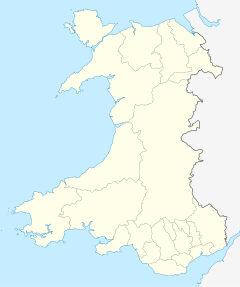St Julians, Newport facts for kids
Quick facts for kids St Julians |
|
|---|---|
| Population | 8,675 (2011 census) |
| Language | English Cymraeg (Welsh) |
| OS grid reference | ST322894 |
| Principal area | |
| Country | Wales |
| Sovereign state | United Kingdom |
| Post town | NEWPORT |
| Postcode district | NP19 7 |
| Dialling code | 01633 |
| Ambulance | Welsh |
| EU Parliament | Wales |
| UK Parliament |
|
| Welsh Assembly |
|
St Julians (Welsh: Sain Silian) is a lively area in the City of Newport, South Wales. It is known as a "community," which is a type of local area in Wales. St Julians is also an "electoral ward," meaning it's a special area used for local elections.
This community is bordered by the River Usk on its west and north sides. Other boundaries include roads like The Moorings, Badminton Road, and Heather Road to the east. To the south, you'll find Christchurch Road and Newport Town Bridge. The area includes smaller districts such as Barnardtown and Riverside. Most of St Julians is in this ward, but a small part is in the Beechwood ward.
Contents
History of St Julians
St Julians is named after Saint Julius of Caerleon. He was a Roman martyr, which means he died for his beliefs.
Churches in St Julians
There are several churches in St Julians. The main Anglican church is dedicated to Saints Julius and Aaron. It is located on Heather Road. The Roman Catholic church, which is dedicated to St Julius, can be found on Beaufort Road. St Julian's Methodist Church is at the corner of Caerleon Road and St Julian's Avenue. St Julian's Baptist Church is also on Beaufort Road.
Street Names in St Julians
Many streets in the newer parts of St Julians are named after famous painters. This includes roads like Rembrandt Way and Constable Drive. The older streets, built between the two World Wars, have names from the Firbank family. This family owned the land from 1869 to 1926.
Learning in St Julians
St Julians has two primary schools for younger students. These are Glan Usk Primary School and St Julian's Primary School.
St Julian's School
St Julian's School first opened its doors in 1953. It has been helping students learn for many years.
Glan Usk Primary School
Glan Usk Primary School is a newer school. It opened in January 2010. The school received a lot of money, about £9.7 million, from the Welsh Government to help build it. This school also offers nursery school places for very young children. This happened after Rockfield Nursery closed down. The school is built on a site that was once used for factories in the 1930s and 1960s.
How St Julians is Governed
St Julians is also an "electoral ward" for the Newport City Council. This means people in St Julians vote for local councillors. These councillors represent the area on the city council.
Since 1995, St Julians has been represented by three councillors. In the past, the ward has elected councillors from different political parties. For example, in 1995 and 1999, three Labour Party councillors were chosen. Then, in 2004 and 2008, three Liberal Democrat councillors were elected. Since 2012, a mix of Labour and Liberal Democrat councillors have been elected.
In 2016, a long-serving Liberal Democrat councillor named Ed Townsend passed away. His wife, Carmel Townsend, won his seat in a special election. She had also been a councillor in 2008.
St. Julian's House
St. Julian's House was a very old building with a long history. It was built in 1480. It stood on the site of an even older chapel, which was said to hold the remains of Saint Julius.
Owners of the House
Sir George Herbert started the house and its estate. His family owned it until around 1720. Over time, the large Tudor mansion became smaller, turning into a farmhouse. Parts of the estate were no longer used. Later, the Duke of Beaufort owned the property. In 1869, a railway contractor named Joseph Firbank bought the estate.
Changes to the House
In 1880, Joseph Firbank rebuilt St. Julian's House as a Victorian farmhouse. He kept some of the original parts, like the Tudor porch. He also built a grander, more modern house nearby called (Upper) St. Julian's. The original house then became known as Lower or Old St. Julian's.
End of St. Julian's House
Upper St. Julian's was taken down in 1933 to make way for new homes. After the Second World War, the older house was turned into a garage for cars. The land around the house was sold off and built on. By the 1970s, St. Julian's House was completely unused and falling apart. It was finally taken down in 1980. Today, a building called Marina Court stands where the historic house once was.


